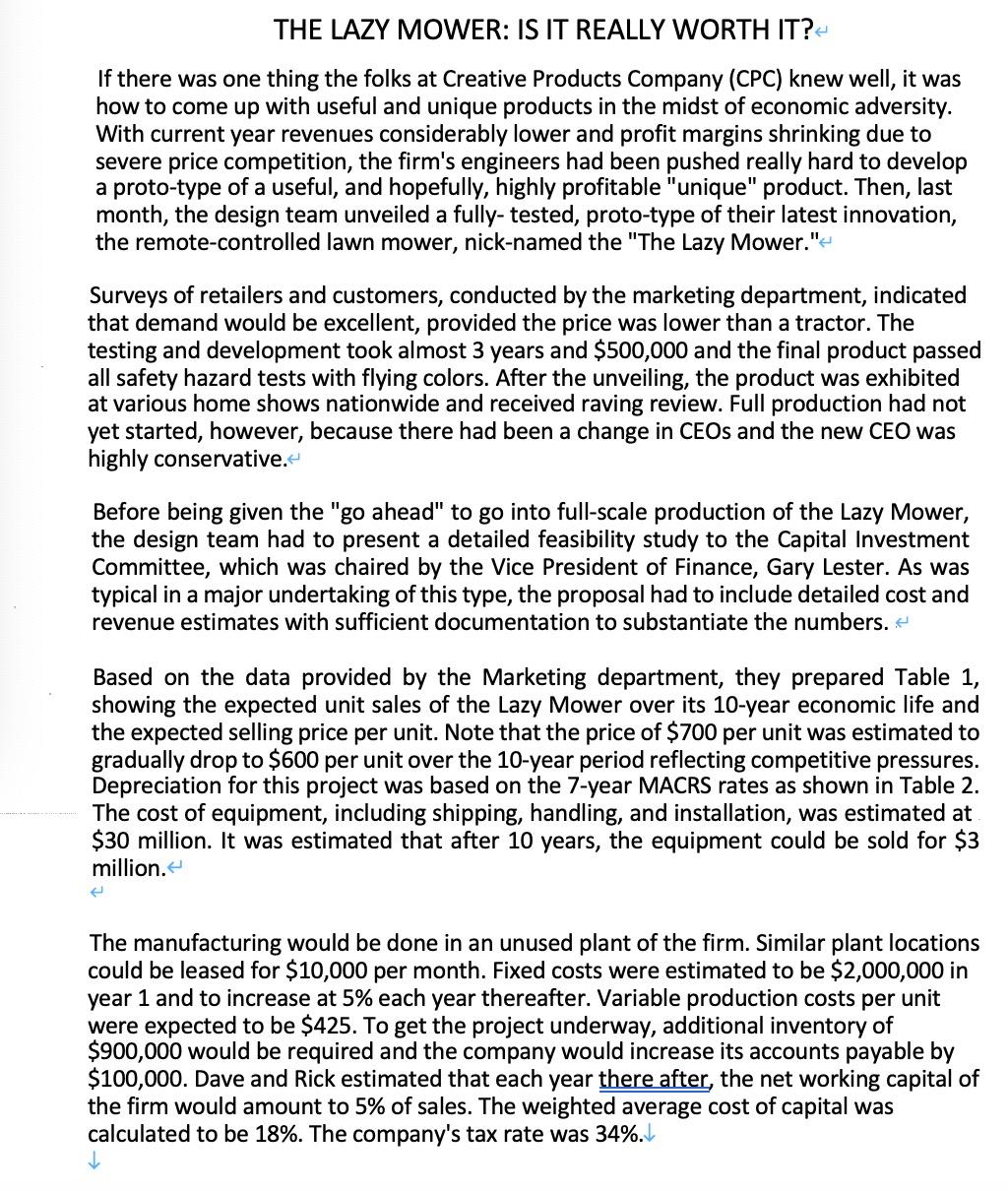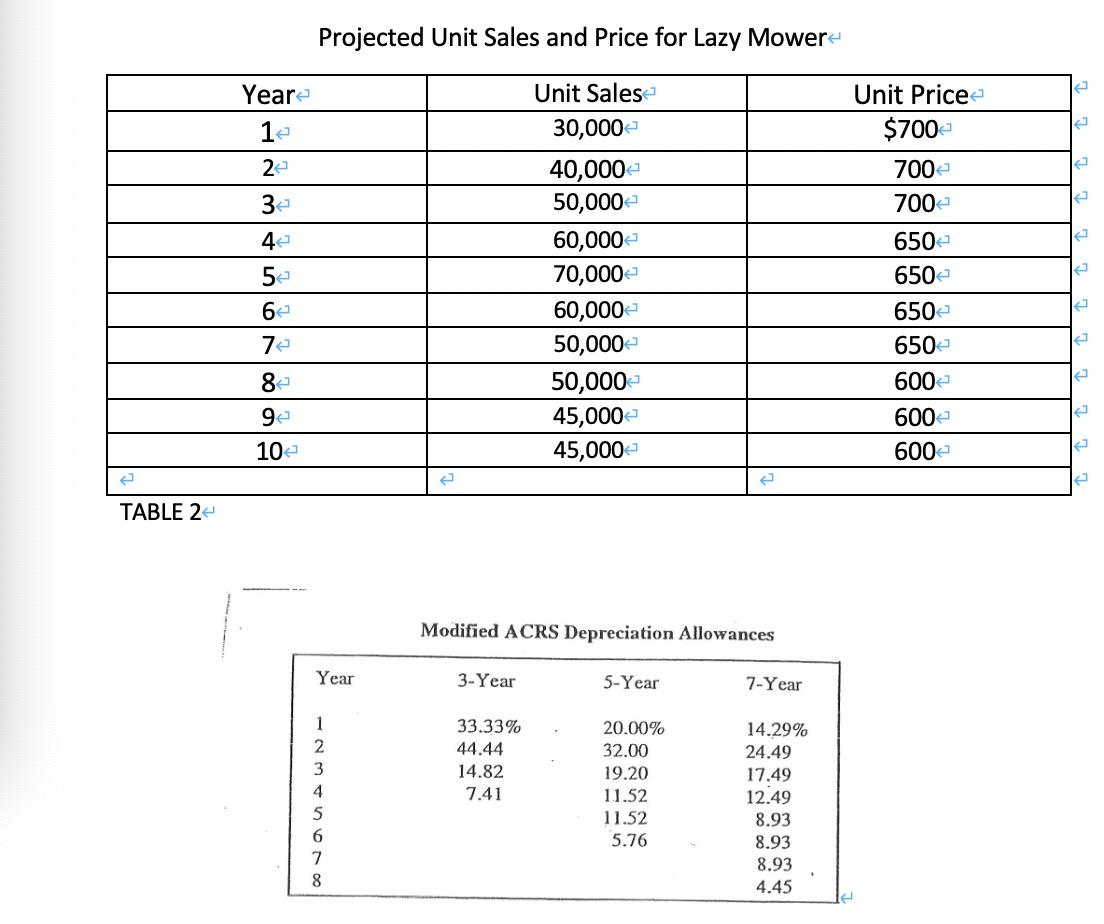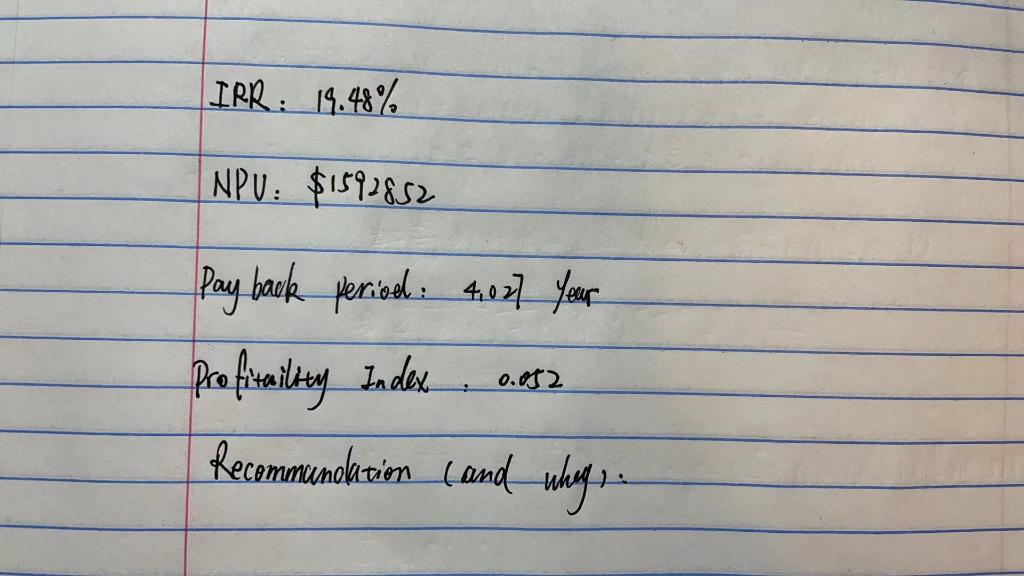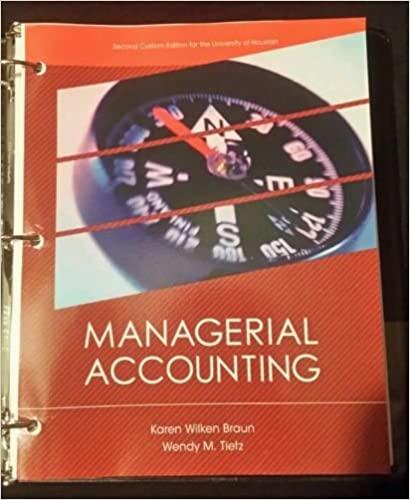Answered step by step
Verified Expert Solution
Question
1 Approved Answer
Only give recommandation. If you copy someone else's answer, I will report you. THE LAZY MOWER: IS IT REALLY WORTH IT? If there was one



Only give recommandation. If you copy someone else's answer, I will report you.
THE LAZY MOWER: IS IT REALLY WORTH IT? If there was one thing the folks at Creative Products Company (CPC) knew well, it was how to come up with useful and unique products in the midst of economic adversity. With current year revenues considerably lower and profit margins shrinking due to severe price competition, the firm's engineers had been pushed really hard to develop a proto-type of a useful, and hopefully, highly profitable "unique" product. Then, last month, the design team unveiled a fully-tested, proto-type of their latest innovation, the remote-controlled lawn mower, nick-named the "The Lazy Mower." Surveys of retailers and customers, conducted by the marketing department, indicated that demand would be excellent, provided the price was lower than a tractor. The testing and development took almost 3 years and $500,000 and the final product passed all safety hazard tests with flying colors. After the unveiling, the product was exhibited at various home shows nationwide and received raving review. Full production had not yet started, however, because there had been a change in CEOs and the new CEO was highly conservative. Before being given the "go ahead" to go into full-scale production of the Lazy Mower, the design team had to present a detailed feasibility study to the Capital Investment Committee, which was chaired by the Vice President of Finance, Gary Lester. As was typical in a major undertaking of this type, the proposal had to include detailed cost and revenue estimates with sufficient documentation to substantiate the numbers. Based on the data provided by the Marketing department, they prepared Table 1, showing the expected unit sales of the Lazy Mower over its 10-year economic life and the expected selling price per unit. Note that the price of $700 per unit was estimated to gradually drop to $600 per unit over the 10-year period reflecting competitive pressures. Depreciation for this project was based on the 7-year MACRS rates as shown in Table 2. The cost of equipment, including shipping, handling, and installation, was estimated at $30 million. It was estimated that after 10 years, the equipment could be sold for $3 million. el The manufacturing would be done in an unused plant of the firm. Similar plant locations could be leased for $10,000 per month. Fixed costs were estimated to be $2,000,000 in year 1 and to increase at 5% each year thereafter. Variable production costs per unit were expected to be $425. To get the project underway, additional inventory of $900,000 would be required and the company would increase its accounts payable by $100,000. Dave and Rick estimated that each year there after the net working capital of the firm would amount to 5% of sales. The weighted average cost of capital was calculated to be 18%. The company's tax rate was 34%. Projected Unit Sales and Price for Lazy Mower Yeare 12 2 32 1 Unit Sales 30,000 40,000 50,000 60,000 70,000 60,000 50,000 50,000 45,000 45,000 Unit Price $700- 700- 700 650 650 650 650 42 5 6 7e 12 8 9 10 600 600 600 TABLE 2- Modified ACRS Depreciation Allowances Year 3-Year 5-Year 7-Year 1 2 3 33.33% 44.44 14.82 7.41 20.00% 32.00 19.20 11.52 11.52 5.76 14.29% 24.49 17.49 12.49 8.93 8.93 8.93 4.45 7 8 IRR: 19.48% NPU: 1592852 Pay back period: 4,027 year profinailty Index 0.072 3 Recommunolation cand why) THE LAZY MOWER: IS IT REALLY WORTH IT? If there was one thing the folks at Creative Products Company (CPC) knew well, it was how to come up with useful and unique products in the midst of economic adversity. With current year revenues considerably lower and profit margins shrinking due to severe price competition, the firm's engineers had been pushed really hard to develop a proto-type of a useful, and hopefully, highly profitable "unique" product. Then, last month, the design team unveiled a fully-tested, proto-type of their latest innovation, the remote-controlled lawn mower, nick-named the "The Lazy Mower." Surveys of retailers and customers, conducted by the marketing department, indicated that demand would be excellent, provided the price was lower than a tractor. The testing and development took almost 3 years and $500,000 and the final product passed all safety hazard tests with flying colors. After the unveiling, the product was exhibited at various home shows nationwide and received raving review. Full production had not yet started, however, because there had been a change in CEOs and the new CEO was highly conservative. Before being given the "go ahead" to go into full-scale production of the Lazy Mower, the design team had to present a detailed feasibility study to the Capital Investment Committee, which was chaired by the Vice President of Finance, Gary Lester. As was typical in a major undertaking of this type, the proposal had to include detailed cost and revenue estimates with sufficient documentation to substantiate the numbers. Based on the data provided by the Marketing department, they prepared Table 1, showing the expected unit sales of the Lazy Mower over its 10-year economic life and the expected selling price per unit. Note that the price of $700 per unit was estimated to gradually drop to $600 per unit over the 10-year period reflecting competitive pressures. Depreciation for this project was based on the 7-year MACRS rates as shown in Table 2. The cost of equipment, including shipping, handling, and installation, was estimated at $30 million. It was estimated that after 10 years, the equipment could be sold for $3 million. el The manufacturing would be done in an unused plant of the firm. Similar plant locations could be leased for $10,000 per month. Fixed costs were estimated to be $2,000,000 in year 1 and to increase at 5% each year thereafter. Variable production costs per unit were expected to be $425. To get the project underway, additional inventory of $900,000 would be required and the company would increase its accounts payable by $100,000. Dave and Rick estimated that each year there after the net working capital of the firm would amount to 5% of sales. The weighted average cost of capital was calculated to be 18%. The company's tax rate was 34%. Projected Unit Sales and Price for Lazy Mower Yeare 12 2 32 1 Unit Sales 30,000 40,000 50,000 60,000 70,000 60,000 50,000 50,000 45,000 45,000 Unit Price $700- 700- 700 650 650 650 650 42 5 6 7e 12 8 9 10 600 600 600 TABLE 2- Modified ACRS Depreciation Allowances Year 3-Year 5-Year 7-Year 1 2 3 33.33% 44.44 14.82 7.41 20.00% 32.00 19.20 11.52 11.52 5.76 14.29% 24.49 17.49 12.49 8.93 8.93 8.93 4.45 7 8 IRR: 19.48% NPU: 1592852 Pay back period: 4,027 year profinailty Index 0.072 3 Recommunolation cand why)Step by Step Solution
There are 3 Steps involved in it
Step: 1

Get Instant Access to Expert-Tailored Solutions
See step-by-step solutions with expert insights and AI powered tools for academic success
Step: 2

Step: 3

Ace Your Homework with AI
Get the answers you need in no time with our AI-driven, step-by-step assistance
Get Started


